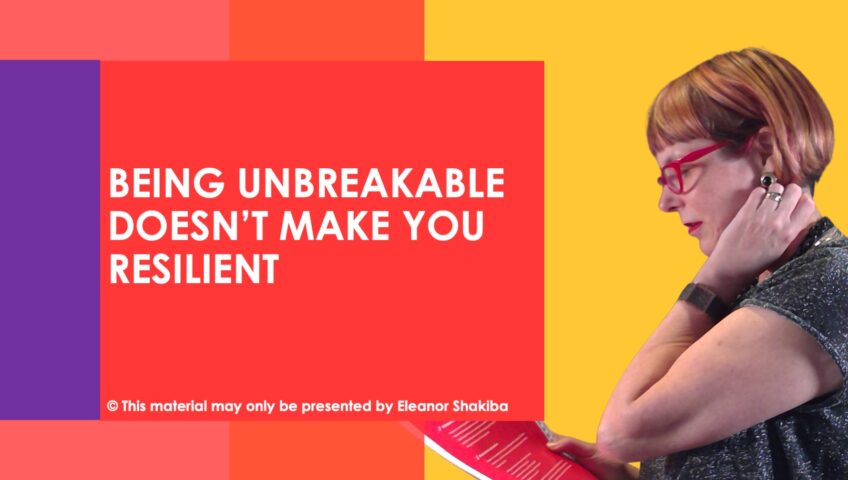The biggest myth about resilience is that it involves being tough. No it doesn’t! If you own a t-shirt that says, ‘weakness is not an option’, here’s why you should throw it out. Being resilient means being able to go through adversity without suffering long-term psychological damage. In other words, none of the following: ongoing anxiety, confidence problems, stress or depression. A resilient mind is a mind that learns and grows from tough times. As I explain in this week’s video, resilient people accept their emotions. They know that feeling fragile doesn’t mean you’re broken!
I’ve been coaching high achievers since 1996. That means I’ve had thousands of conversations regarding how leaders can stay focused and motivated in tough times. Many of these leaders ask me how to build their self-discipline or stop procrastinating. What I’ve never been asked is how to build self-compassion. However, you cannot be resilient if you lack self-compassion. Here’s why.
Self-compassion is the bedrock of resilience
It allows you to accept your emotions and find a way forward – even when you feel sad, angry or stressed. Self-compassion is what lets you rest when you are tired or pause when you are overwhelmed. It prompts you to learn from mistakes and seek help when you need it. Plus, it prevents conflict and problems with team dynamics. What a bonus!
Self-compassion means accepting yourself and accepting others
Self-acceptance makes you a more creative thinker. When you don’t judge yourself, it’s easier to accept that other people have different views from you. This makes you a wiser and more compassionate leader. It also helps you learn from the people around you – which increases your behavioural flexibility and strengthens your resilience.
Self-compassion broadens your thinking
As I explained in a recent blog article, resilient people have interesting thinking habits. All of these involve shifting your perspective on problems and believing in your own ability to take impactful action. I think of these as strong thinking habits. They all help you to be open, accepting and flexible. In other words someone who thrives beyond adversity and helps others to do the same.
